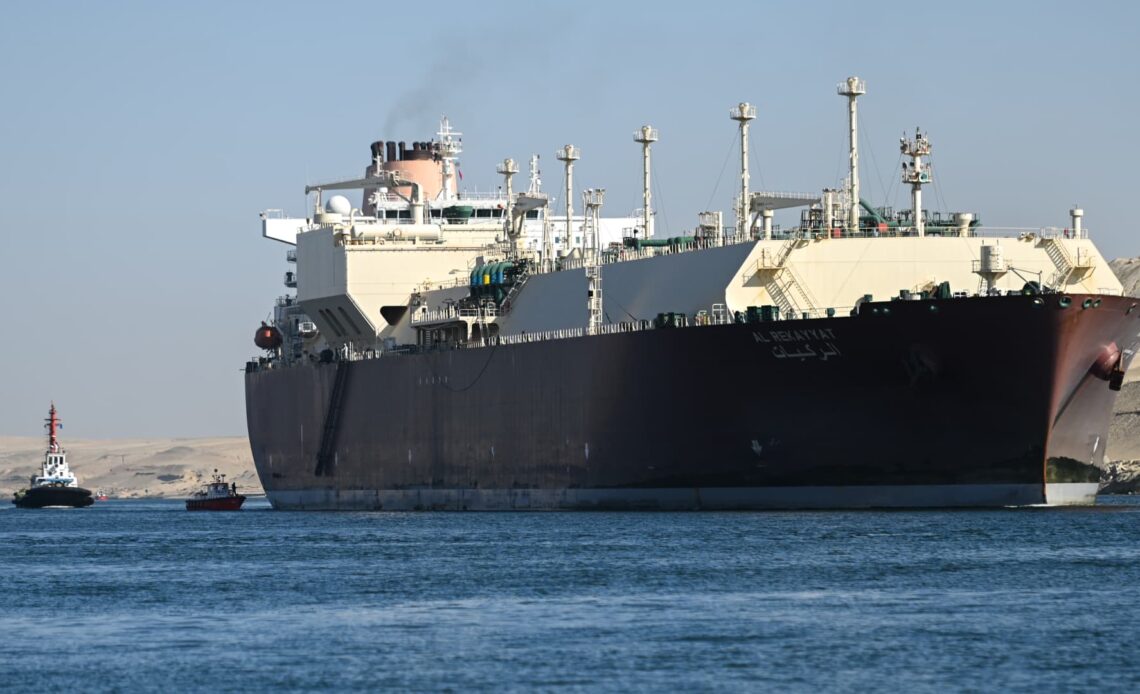A ship transits the Suez Canal towards the Red Sea on January 10, 2024 in Ismailia, Egypt.
Sayed Hassan | Getty Images
Trade associations representing sectors across the global economy have joined an open letter urging more governments around the world to join Red Sea maritime security efforts.
The letter, obtained exclusively by CNBC, was signed by many of the top trade groups in the U.S., including the American Apparel and Footwear Association and the National Retail Federation.
Currently, U.S.-led Operation Prosperity Guardian is the primary military defense effort protecting merchant vessels that have come under attack from Houthi rebels in the Red Sea. The multinational security initiative has at least 23 participating countries to date, but the open letter calls on more nations to play a role in protecting shipping.
“As representatives of organizations whose members depend on safe and secure ocean shipping routes, we urgently call on countries to join, support, or align with the mission to support safe and secure maritime commerce in the Red Sea,” the letter states.
The trade groups’ letter comes at a time when the scrutiny of military efforts in the Red Sea is rising within countries that have taken a lead role, including the U.S.
Senators on the Foreign Relations Committee, as well as House representatives, have recently questioned the Biden administration‘s unilateral authorization of Navy action in the Red Sea that can be on behalf of foreign-flagged vessels. France is among nations to recently face political pressure and make a change to prioritize the protection of domestic-flagged vessels. Political concerns in the U.S. increased last week after the deaths of five U.S. servicemen serving in the region.
Despite political pressure, the flow of global trade remains heavily reliant on the use of foreign vessels. U.S. import and export data, in particular, shows that the majority of the country’s trade is on foreign-flagged vessels, with less than 3% of trade carried by U.S. vessels, according to MDS Transmodal.
The trade reality also aligns with the longstanding United States’ policy upholding freedom of navigation for all nations as a principle. Under international law, freedom of navigation is defined as the “freedom of movement for vessels, freedom to enter ports and to make use of plant and docks, to load and unload goods and to transport goods and passengers.”
“It is imperative that countries that have not yet joined or aligned with this vital…
Click Here to Read the Full Original Article at Top News and Analysis (pro)…


